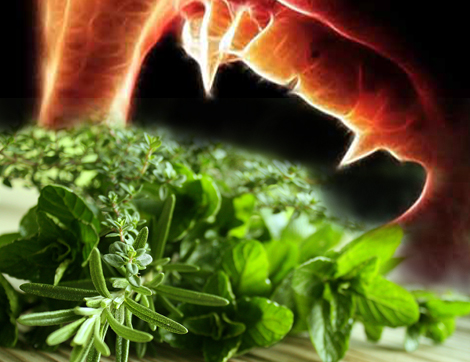
• World’s leading bacteriologists say Mother Nature developing resistance to human drug waste
By Keith Johnson
A prominent herbalist and award-winning author tells AMERICAN FREE PRESS that botanical medicines may soon become the last line of defense in warding off dangerous new strains of antibiotic-resistant bacteria:“We’re now facing the threat of epidemic diseases more virulent than any that human beings have known before.” These are the words of Stephen Harrod Buhner of the Foundation for Gaian Studies. “It now takes a very short time for bacteria to develop [drug] resistance and then spread that knowledge to the whole bacterial community,” he said.
Over the course of the last 20 years, Buhner has studied this trend and fears that antibiotics may be rendered completely ineffective within the next decade. “Unlike plant medicines, few pharmaceuticals are biodegradable,” said Buhner. “Once they’re excreted or thrown into landfills, they continue to stimulate resistance in the Earth’s ecosystems. This is not fringe science. The world’s leading bacterial researchers are saying this.”
According to Buhner, nearly every drug manufacturer on the planet has stopped research on new antibiotics, compelling many nations around the globe to abandon pharmaceuticals as a primary healthcare approach.
“Pharmaceutical companies have the greatest stranglehold on the United States,” said Buhner. “Canada and the UK would be second. But most other cultures can’t afford to let [this industry] dictate the practice of medicine and are now exploring alternative treatment options for their healthcare systems.”
Buhner added that research being conducted throughout South America, Africa and Asia have yielded the most promising results, and may hold the key to addressing this emerging health crisis.
“They’re finding that botanical medicines are not only just as effective as antibiotics, but they also have no resistance problems, are biodegradable and very inexpensive,” said Buhner. “The Chinese have done some amazing research and now use plant-based medicines for about 90% of their healthcare treatments.”
In his book, Herbal Antibiotics: Natural Alternatives for Drug-Resistant Bacteria, Buhner correlates the latest research and identifies the plant sources that are most effective in combating virulent new strains of antibiotic-resistant bacteria like Methicillin-resistant Staphylococcus aureus (MRSA), a staph infection that kills nearly 20K people in the U.S. every year.
“Herbs like Cryptolepis, which grows in the Ghana region of Africa, are an effective systemic antibacterial that goes into the bloodstream and circulates throughout the body in a very strong way,” said Buhner. “I’ve used it for MRSA, and it has never failed.”
Buhner continued: “Sida acuta, an invasive plant species that grows along the shorelines of the Gulf of Mexico, is also effective in combating MRSA as well as red-blood-cell infections like malaria, bartonellosis and severe anemia.”
S. acuta, Alchornea cordifolia and Bidens pilosa are three plant species Buhner identified as strong systemic antibacterials, the last of which grows in the U.S. and is particularly effective in fighting infections of the mucous membranes.
“Foreign medical journals readily admit that these plants are beneficial to their national healthcare treatment systems,” said Buhner. “But you never hear that in the U.S. because our physicians are trained to become drug dispensers rather than healers.”
Keith Johnson in an investigative journalist and host of the Revolt of the Plebs radio program.


